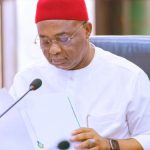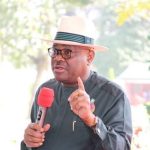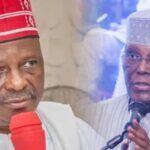The African Network for Environment and Economic Justice (ANEEJ) has expressed concern that Nigeria’s escalating debt could push its citizens into multidimensional poverty

David Ugolor, the Executive Director of ANEEJ, conveyed this information during a two-day International Hybrid Conference on Special Drawing Rights held in Abuja. The conference’s theme was centered around the idea of “Making Special Drawing Rights work for the People.”
The Debt Management Office in Abuja hosted the publication of the paper, “Debt Management, Restricting and Sustainability in ECOWAS.”
The head of the Civil Society Organization (CSO) found it troubling that a substantial portion of Nigeria’s revenue is directed towards debt servicing, emphasizing its impact on some West African nations as well
Ugolor, who was represented by the Deputy Director of ANEEJ, Leo Atakpu, said, “Statistics from the DMO shows that Nigeria’s public debt stood at N87,379,401.75 trillion as of June 30, 2023, and in the same vein, Ghana’s public debt stock rose to 569.3 billion cedis ($49.7 billion) at the end of April 2023, according to figures obtained from the Bank of Ghana.
“The COVID-19 pandemic has increased solvency and liquidity issues, which is one of the main reasons Sierra Leone’s debt is categorized as having a high risk of debt distress.
“For us in civil society, this is quite disturbing because most of our countries’ revenues are now being channeled to debt servicing obligations at the peril of basic social services, climate, and other development exigencies.
“The debt crisis imperils the attainment of the Sustainable Development Goals and achievement of the Paris Climate Agreement in West Africa. This becomes even more worrisome when viewed against the backdrop that Nigeria remains the world poverty capital as designated by the World Poverty Clock report of 2023.
“It means debt will drive more Nigerians and indeed, West Africans into extreme and multidimensional poverty if urgent and drastic steps are not taken by our governments and the international community.
“In addition to reviewing the use of SDRs in Ghana and Nigeria, he stated the conference would “take a deep dive into current debates around SDR reallocation to countries in most need, such as Ghana and Nigeria, without having to exacerbate the debt crisis.”
According to a report released by the Nigerian Economic Summit Group and the Open Society Initiative for West Africa, Benin Republic, Burkina Faso, Cabo Verde, the Gambia, Ghana, Guinea Bissau, Liberia, Niger, Senegal, and Togo are among the countries grappling with substantial debt challenges.
Kanyi Daily recalls that Civil Society Organizations in Edo state embarked on a street protest expressing their vehement opposition to the persistent rise in petrol pump prices.




![Gospel Singer, Sola Allyson Breaks Down In Tears Over Criticism for Not Mentioning ‘Jesus’ in Her Songs [Video] 5 Gospel Singer, Sola Allyson Breaks Down In Tears Over Criticism for Not Mentioning ‘Jesus’ in Her Songs [Video]](https://media.kanyidaily.com/2025/03/29193024/Sola-Allyson-150x150.webp)










